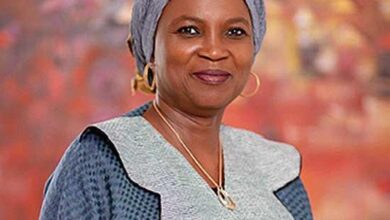COVID-19 and Ebola: How Ready Is Ghana for the Next Pandemic?


Executive Summary
Ghana, like much of the world, has endured the devastating shocks of COVID-19 and faced the looming threat of Ebola. Lives were lost, businesses collapsed, poverty deepened, and fiscal resilience was tested.
Yet as the world moves on, the question remains: Have we truly learned? This article examines Ghana’s pandemic readiness through the lens of COVID-19 and Ebola – highlighting the economic, social, and governance impacts, evaluating existing measures, and proposing actionable strategies to ensure Ghana is trigger-ready for the next global health emergency.
Introduction: The Global Wake-Up Call
The COVID-19 pandemic, which emerged in late 2019, quickly became one of the most devastating global health crises in modern history. By May 2023, the World Health Organization (WHO) estimated that over 6.9 million people had died worldwide, with more than 760 million confirmed cases reported (WHO, 2023).
The global economy contracted by 3.3% in 2020, wiping out nearly US$10 trillion in economic output (IMF, 2021). Millions lost their jobs, businesses folded, and global poverty rates rose for the first time in decades.
Before COVID-19, the Ebola Virus Disease (EVD) had already demonstrated Africa’s vulnerability to epidemics. Between 2014 and 2016, the Ebola outbreak in West Africa killed over 11,000 people, primarily in Guinea, Liberia, and Sierra Leone (CDC, 2019).
The World Bank estimated a US$2.8 billion GDP loss across these countries due to disruptions in trade, healthcare systems, and labour markets (World Bank, 2016).
Both pandemics exposed the fragility of health systems, governance structures, and economic resilience across developing nations, Ghana included.
Ghana’s Experience: The Local Impact of Global Pandemics
COVID-19 in Ghana
Ghana recorded its first two COVID-19 cases on March 12, 2020 (Ghana Health Service, 2020). By early 2023, total confirmed cases had surpassed 171,000, with 1,462 deaths (GHS, 2023). The government implemented lockdowns, border closures, and restrictions on movement—all of which, though necessary, severely affected livelihoods and businesses.
According to the Ghana Statistical Service (GSS, 2021), nearly 770,000 workers experienced job losses or pay cuts in 2020, with 26% of businesses reporting revenue declines exceeding 50%.
The World Bank (2022) reported that Ghana’s GDP growth fell from 6.5% in 2019 to 0.4% in 2020, pushing an estimated 850,000 Ghanaians into poverty.
Government spending surged – COVID-related expenditures exceeded GHS 21 billion, while revenue collection dropped sharply due to reduced business activity (Ministry of Finance, 2021).
Ebola and Ghana’s Proximity Risk
Though Ghana never recorded a confirmed Ebola case, its proximity to affected countries made it highly vulnerable. In 2014, suspected cases were reported in Kumasi and Tamale, which were later declared negative (GHS, 2014).
Nonetheless, Ghana incurred high preparedness costs – deploying surveillance teams, equipping isolation centres, and training over 2,000 health workers (MoH, 2015).
The Ebola scare disrupted trade within West Africa, reduced cross-border commerce, and diverted government attention and resources to emergency preparedness at a time when development funding was already stretched.
A Recurrence Threat: Could These Pandemics Return?
The possibility of resurgence remains real. Globally, new strains of COVID-19 continue to emerge – including Omicron subvariants detected as recently as 2025 in parts of Asia and Europe (WHO, 2025).
In Ghana, traces of COVID-19 were detected at the University of Ghana campus in 2023, prompting renewed concern (GHS, 2023).
Meanwhile, the Democratic Republic of Congo and Uganda reported fresh Ebola outbreaks in 2024, reminding the region that the virus remains active (WHO, 2024).
These developments underscore one fact: Pandemics are cyclical, and complacency is dangerous. Ghana must therefore remain in a state of continuous readiness.
Measures Ghana Has Put in Place
Since 2020, Ghana has made notable progress in strengthening its pandemic preparedness. Key measures include:
- Establishment of the National COVID-19 Taskforce and Presidential Coordinating Committee to guide response and resource allocation.
- Upgrading of the Noguchi Memorial Institute for Medical Research (NMIMR) and KCCR for improved testing capacity.
- Procurement and deployment of vaccines under the COVAX initiative, with over 25 million doses administered as of 2023 (GHS, 2023).
- Expansion of the Ghana Infectious Disease Centre (GIDC) – a state-of-the-art 100-bed facility built through public-private collaboration.
- Development of the National Action Plan for Health Security (NAPHS), aligned with WHO’s International Health Regulations framework.
- Deployment of digital contact tracing and health surveillance systems.
- Community sensitisation and engagement campaigns supported by CSOs, religious bodies, and the media.
These are commendable efforts, but the question is: Are they being sustained?
Border Management and Disease Surveillance
In addition to national surveillance systems and vaccination campaigns, Ghana’s border and entry-point management remains critical.
The country maintains Port Health Units across airports, seaports, and key land borders to conduct health screenings, disinfection, and documentation checks for travellers.
Digital tools such as biometric e-gates, e-visas, and digital health certifications have enhanced monitoring and reduced identity fraud. Ghana also participates in Africa CDC’s Cross-Border Surveillance Framework and WHO’s Points of Entry Programme.
However, border porosity remains a major vulnerability. Many unofficial crossings along Ghana’s western, northern, and eastern frontiers lack surveillance infrastructure, leaving detection gaps.
While airports and seaports are relatively well-equipped, land borders often face staff shortages, inadequate diagnostic tools, and poor data integration between agencies – weaknesses that could undermine future containment efforts.
The Critical Questions
- Are preparedness measures still operational, funded, and monitored, or have they become dormant post-COVID?
- What monitoring and evaluation systems exist for real-time data review?
- Are laboratories and logistics adequately resourced?
- How informed is the citizenry, given declining public awareness?
- Is Parliament exercising adequate oversight, particularly through its Health Sub-Committee?
These are questions of accountability, not just for the Ministry of Health, but for every institution charged with public safety.
Economic resilience is also crucial. Ghana’s debt-to-GDP ratio exceeded 90% post-COVID (IMF, 2023). Does the national budget make sufficient contingency provisions for future crises? Are there frameworks for SME support, liquidity relief, or domestic production of essential goods during emergencies?
The Solution: Building Trigger-Ready Preparedness
To ensure resilience, Ghana can draw lessons from international best practices:
- Rwanda conducts biannual emergency simulation exercises to test its health response systems.
- Singapore maintains a Pandemic Preparedness and Response Fund with ring-fenced annual contributions.
- South Korea uses real-time digital epidemiology platforms linking hospitals, laboratories, and border control.
For Ghana, the following actions are critical:
- Legislate a permanent Pandemic Preparedness Fund under parliamentary oversight.
- Institutionalise annual national emergency simulations.
- Invest in genome sequencing capacity at NMIMR and KCCR.
- Empower local governments to include epidemic readiness in their annual plans.
- Build fiscal buffers and liquidity facilities to sustain critical industries.
- Encourage domestic production of PPEs, pharmaceuticals, and sanitizers.
- Promote public-private coordination through an Economic Preparedness Council.
- Adopt real-time economic data systems for evidence-based interventions.
- Enhance transparency in emergency spending through open data portals.
Conclusion: A Call to Action
Ghana’s greatest wealth lies not only in its natural resources but in the health, productivity, and resilience of its people. To protect lives, the economy, and social stability, Ghana must be both health-ready and economically-ready.
COVID-19 and Ebola proved that pandemics do not only test health systems – they test economic discipline, governance integrity, and social cohesion. Preparedness must therefore go beyond stockpiling supplies; it must include cross-sectoral coordination, fiscal planning, and transparent governance.
The next pandemic is not a matter of if, but when. Ghana’s readiness must evolve from rhetoric to sustained, well-funded action across health, economy, and governance.
True resilience begins not with panic, but with preparedness.
DISCLAIMER: The Views, Comments, Opinions, Contributions and Statements made by Readers and Contributors on this platform do not necessarily represent the views or policy of Multimedia Group Limited.
DISCLAIMER: The Views, Comments, Opinions, Contributions and Statements made by Readers and Contributors on this platform do not necessarily represent the views or policy of Multimedia Group Limited.
Source link





